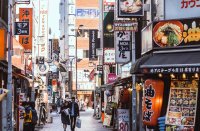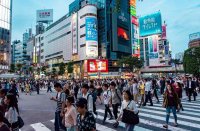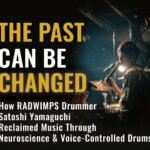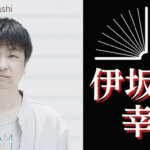Air flow from a person breathing, talking, and coughing, with & without face mask. Visualization by @LaVisionInc pic.twitter.com/RbeEgzJu1n
— Lex Fridman (@lexfridman) April 3, 2020
On the World Health Organization website, it states that “If you are healthy, you only need to wear a mask if you are taking care of a person with suspected 2019-nCoV infection.” However, in many Asian countries, wearing face masks whenever you are outdoors is mandatory. Then, can face mask help preventing infection?
The Guardian argues that “Wearing a face mask is certainly not an iron-clad guarantee that you won’t get sick – viruses can also transmit through the eyes and tiny viral practices, known as aerosols, can penetrate masks. However, masks are effective at capturing droplets, which is a main transmission route of coronavirus”. The article argues that if you are going to interact with people who are likely to have the virus or you have the symptoms yourself, then wearing a mask can protect both sides. However, the article point out that “masks will probably make little difference if you’re just walking around town or taking a bus so there is no need to bulk-buy a huge supply”.
Protect others, wear a mask.
When others wear a mask, they protect you.US CDC seems considering urging public to wear a mask. It doesn't just come from the gov, it requires everyone contributes a bit.
Any mask is better than none.
Use DIY ones if N95/surgical mask in shortage. pic.twitter.com/6DV4pM2aOq— LO Kin-hei 羅健熙 (@lokinhei) March 31, 2020
CNN’s article quoted Mike Ryan, executive director of the World Helath Organization (WHO) that “There is no specific evidence to suggest that the wearing of masks by the mass population has any potential benefit. In fact, there’s some evidence to suggest the opposite in the misuse of wearing a mask properly or fitting it properly.” Ryan also raised the concern that there is a massive global shortage and the general public should leave the supplies for medical workers.
Tips for wearing a surgical #mask. #COVID19 pic.twitter.com/dZI630hnkv
— Stephen Ferrara, DNP (@StephenNP) April 1, 2020
However, in a New York Times article, argues that WHO’s announcement is contradictory because “how does these masks magically protect the wearers only and only if they work in a particular field?”. The writer even pointed out that WHO officials wear masks during their news briefings. The writer says that despite the masks do not work perfectly and they do not replace hand-washing and social distancing, the masks still protect a bit more than not wearing masks at all.
The article also counter-argues that when WHO asks the general public to wear masks “if they were sick”. Then how about those asymptomatic cases? The writer also list out how Asian countries like Hong Kong and Taiwan jumped to action early with social distancing and universal mask wearing have the pandemic under much better control.
Another article written by Time, explained that the mask-wearing situation is rooted from different cultural norms. The writer says that in Western countries facial expression is crucial to show your identity. Yet, in Asian countries, wearing face masks is a common practice.
Time also interviewed Ria Sinha, a senior research fellow at the University of Hong Kong’s Centre for the Humanities and Medicine. She says that after SARS in 2003, it left an impression to people in Hong Kong. Therefore, wearing a mask has become a “symbol and a tool of protection and solidarity. […] Mask wearing is not always a medical decision for many people, but bond up in sociocultural practice”.
#COVID2019 : MASK TYPES
For normal people: Surgical mask
For healthcare worker: N95Protect ourselves & our country
Together we can fight this pandemic 💪@MedTweetMYHQ pic.twitter.com/7BiuVgaDmW— Dr Nurul Yaqeen (@drnuruly) April 3, 2020
A South China Morning Post opinion piece criticizes how Canada’s chief public health officer Theresa Tam saying that “a mask not only less useful but downright harmful – increased face touching, failure to wash hands, improper handling of a facemask upon removal”. The writer says, “Canada may be denied a tool that has not only helped East Asian nations withstand the siege of the coronavirus well compared to elsewhere, but to continue with some forms of normal life and economic activity”. He suggests that “Canada could follow the lead of east Asian nations that have prioritised face mask usage and managed to retain a semblance of normal life”.
After reading different articles and different research, what are your thoughts on wearing face masks?
Scientists are not completely sure of all the ways that the Covid-19 virus is transmitted, but in a randomized control trial, participants who were told to use a surgical mask, and did so, were 80 percent less likely to contract respiratory illness https://t.co/vzbmIcPEXD
— New York Times Opinion (@nytopinion) April 3, 2020














































